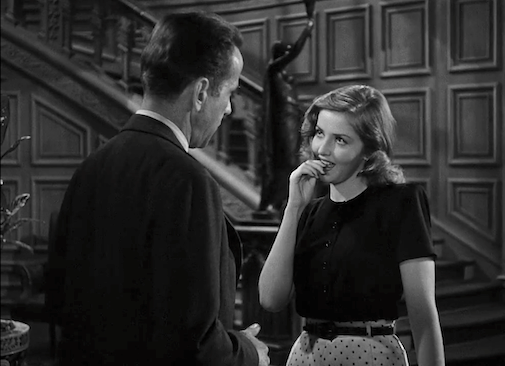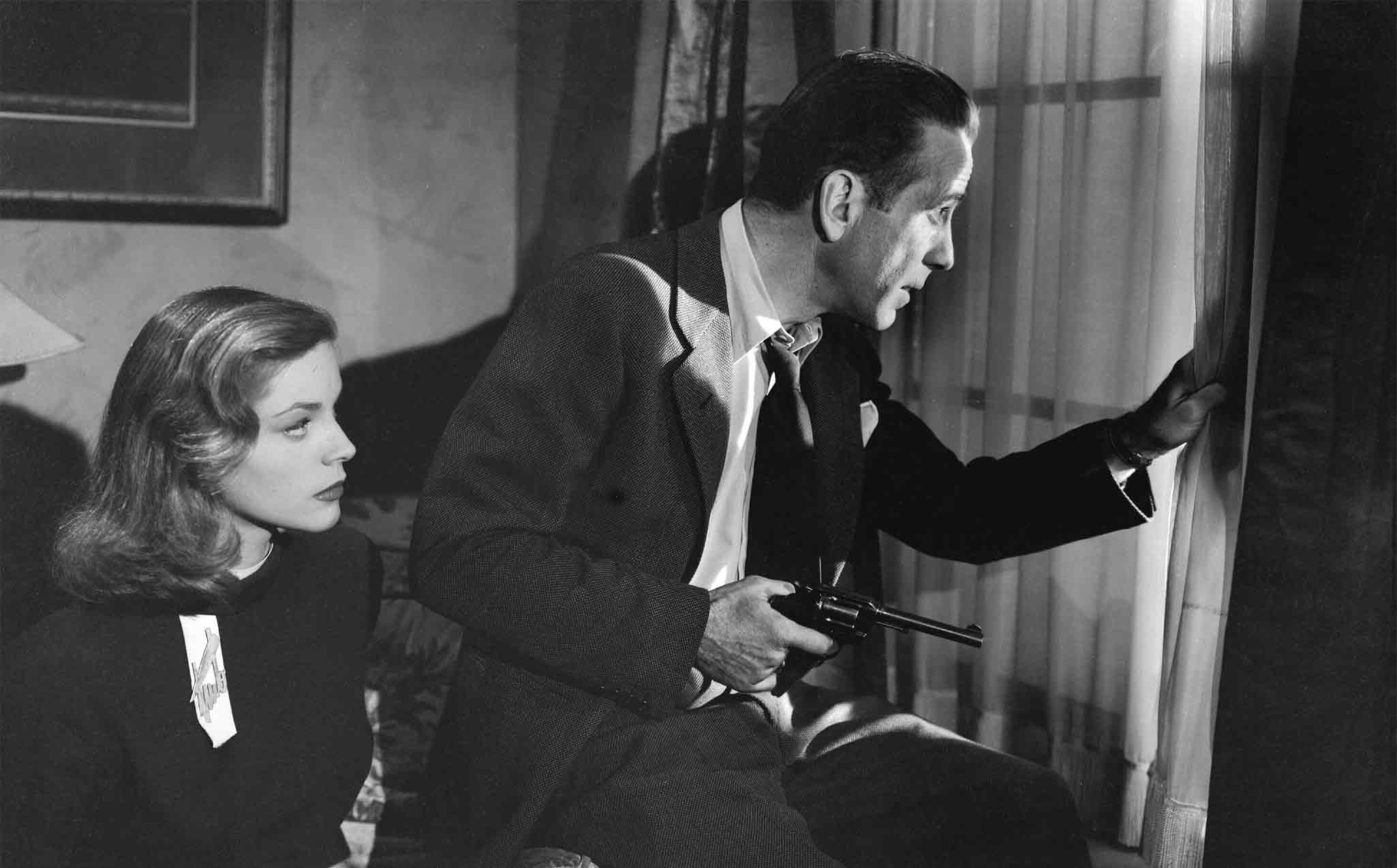1946: Martha Vickers in "The Big Sleep"
 Saturday, June 5, 2021 at 5:00PM
Saturday, June 5, 2021 at 5:00PM Each month before the Smackdown event, suggested options for an alternate ballot in Best Supporting Actress...

by Nick Taylor
How is it I've ended up watching three Bogie & Bacall collaborations in reverse chronological order while celebrating the Smackdown years? At least this means that their pairings have only grown more rewarding, rather than less. I’d probably rank To Have and Have Not ever so slightly above The Big Sleep, but boy is it a twisty, entertaining film, making real cinema out of Raymond Chandler’s novel without sanding away his cynical wit and venom (This write-up is based on the 1946 version of the film, rather than the substantially reorganized and shorter 1945 cut). The Big Sleep also boasts the only real instance in any of these films of a supporting performer truly overshadowing the star couple for sheer charisma and watchability. That actress is Martha Vickers, in the role of Lauren Bacall’s drug-addicted, nymphomaniac sister Carmen Sternwood. If it’s one thing for Moorehead to walk away with a barely-there film like Dark Passage, it’s an entirely different feat to watch Vickers’ intense, dangerous, but visibly curtailed supporting turn swipe the whole movie out from under Bogie and Bacall at very nearly the top of their game.
Before getting into Vickers’ performance, it’s worth sharing a bit of Hollywood history that explains why Vickers is in less of the film than one might be expecting...





